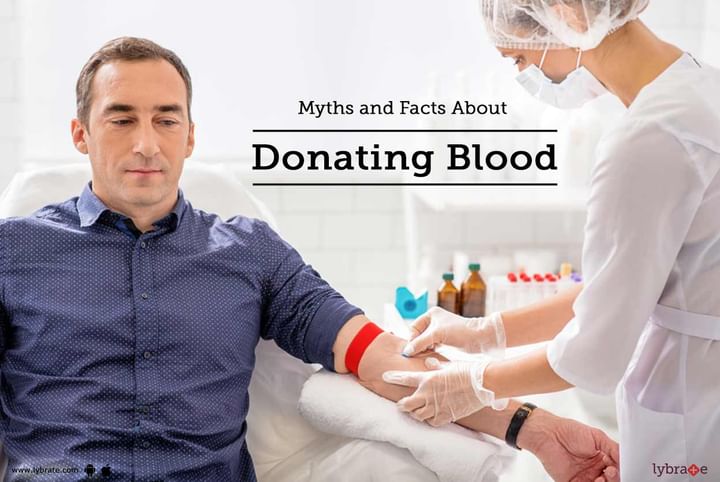Myths and Facts About Donating Blood
When you give some of your blood for someone else, it is called blood donation. It usually helps people who have lost quite a bit of blood in accidents or suffer from diseases, such as cancer or hemophilia, etc.
Like all activities related to medical conditions, there are myths related to blood donation too and some of them are:
1. Myth: Because you're a vegetarian, you don't have enough iron in your blood; so your blood isn't useful as donated blood.
Fact: The fact is that vegetarians can donate blood and their blood has enough iron, just as much as non-vegetarians.
2. Myth: Infections, such as HIV can be contracted from donating blood.
Fact: This does not have a practical basis except for the fact that using contaminated needles might lead to contraction of the infections. However, usually fresh needles are used; therefore this never happens much.
3. Myth: Your health can deteriorate after you donate blood.
Fact: Your body produces new red blood cells as well as white blood cells after donation; hence your health doesn't deteriorate at all, except in cases where there is no rest taken at all after donation.
4. Myth: If you take medications, you cannot donate blood.
Fact: This is entirely dependent on your physician's advice. In the case of some medications, you need to halt them in order to donate blood. In most cases though, taking medications does not prevent you from donating blood.
5. Myth: You will be unable to partake in physical activities after donating blood.
Fact: Heavy lifting should be avoided. Apart from this, donating blood does not stop you from physical activities. You need to rest for a while, but there is nothing about blood donation putting a check on most physical activities.
6.Myth: People with more weight have more blood to donate.
Fact: This is an entirely baseless assumption. Overweight or obese people are often unhealthy, so donating more blood has nothing to do with weight. Hence, obese people do not have more blood in their bodies as compared to their thinner counterparts.



+1.svg)
